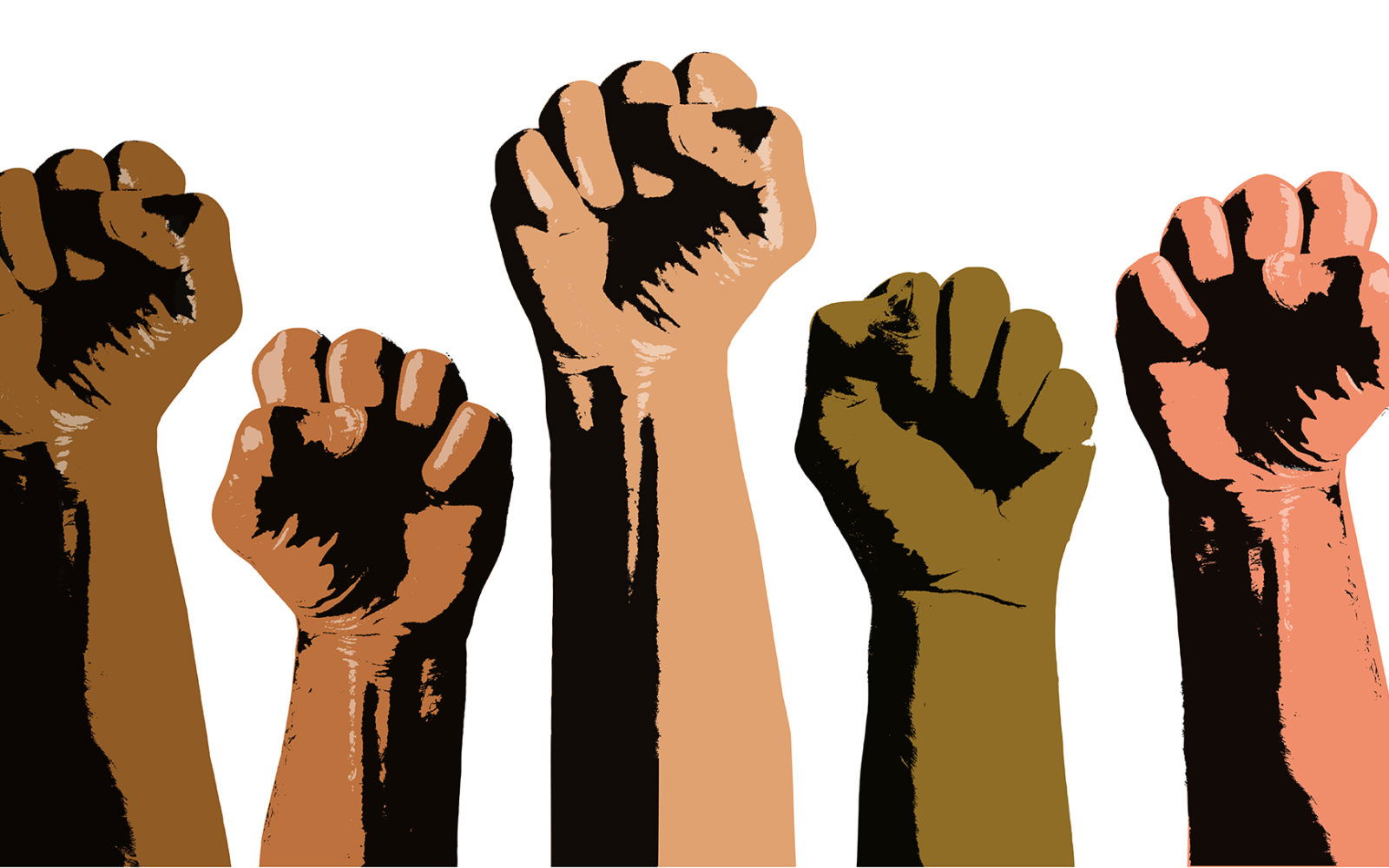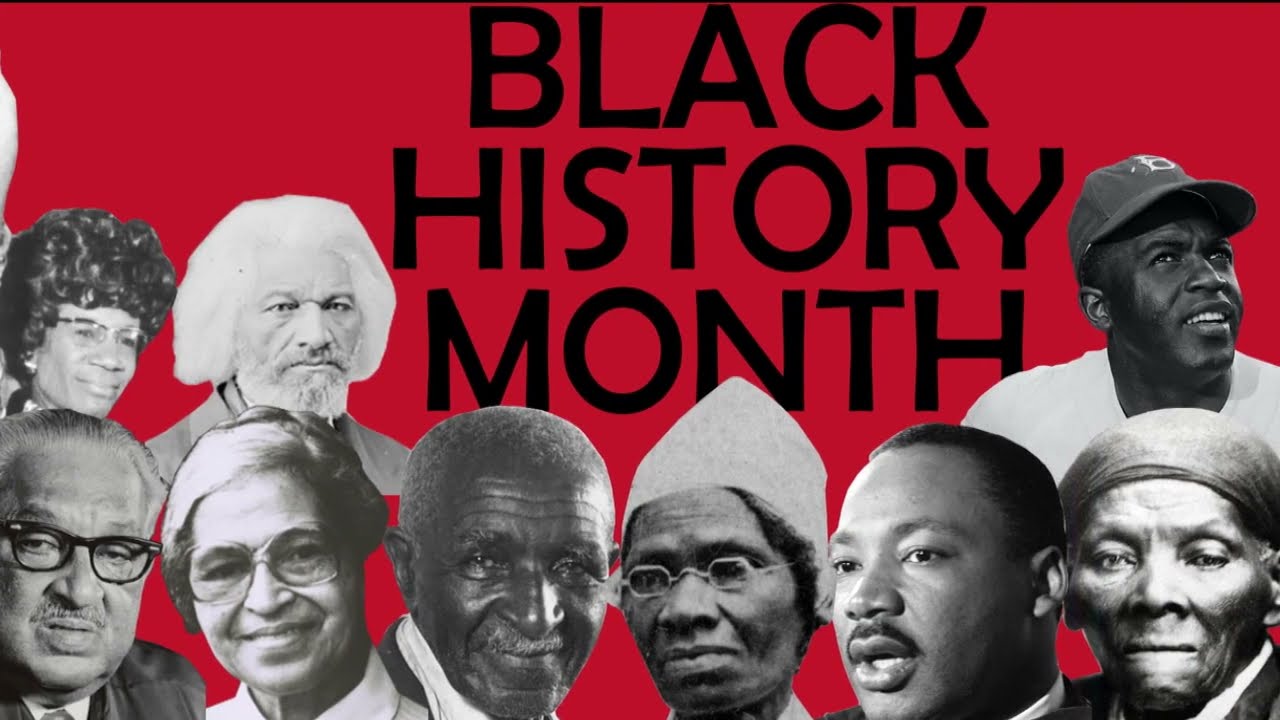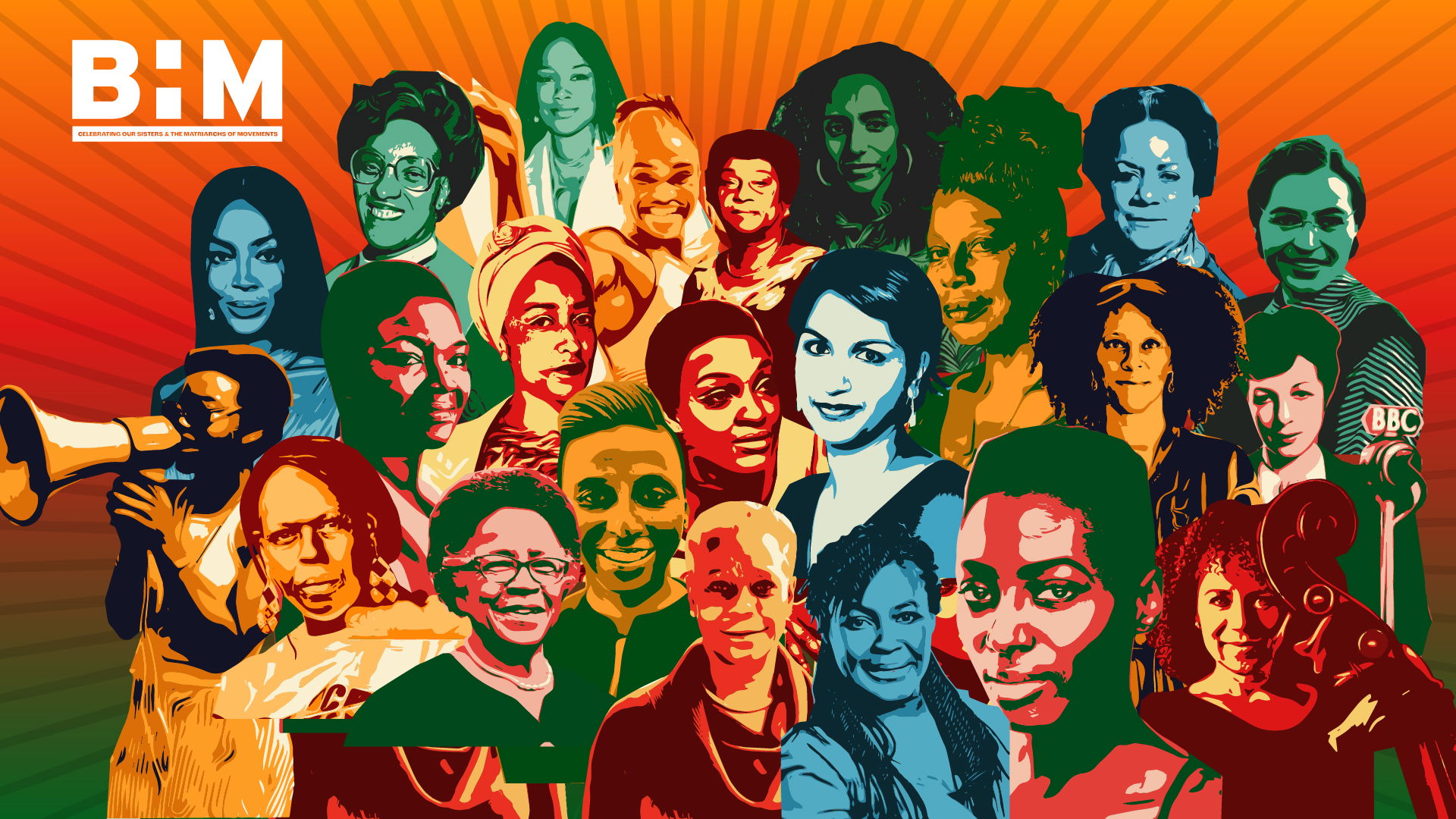Celebrating Black History Month in October ; Honoring Black Heritage and Progress, While Pushing For Integration of Albinism Into The Black Community
Black History Month stands as a powerful tribute to the profound impact and enduring legacy of the African-American community. The origin of this month-long celebration is rooted in a deep-seated desire to recognize the often overlooked contributions and struggles of African-Americans throughout history. This annual commemoration serves as a beacon of remembrance, education, and inspiration for communities worldwide.

A picture of a banner written black history month
The Inception of Black History Month
Black History Month dates back to the early 20th century when Dr. Carter G. Woodson, an esteemed African-American historian, scholar, and educator, recognized the pressing need to highlight the neglected history and achievements of Black Americans. In 1926, Woodson and the Association for the Study of African American Life and History (ASALH) launched the precursor to Black History Month, known as "Negro History Week." This week was strategically placed in the second week of February to coincide with the birthdays of Abraham Lincoln and Frederick Douglass, two pivotal figures in the abolitionist movement. The United States of America and Canada celebrate Black History Month in February while countries like the United Kingdom and Ireland celebrate it in October.

A picture of hands of different shades of black, showing the different skin tones of black people.
Black History Month was created to shed light on the extensive contributions of African Americans to the fabric of society, despite historical marginalization and systemic oppression. It honors all Black people from all periods of U.S. history, from the enslaved people first brought over from Africa in the early 17th century to African Americans living in the United States today. While it originated in the United States, its significance has transcended borders, and it is now celebrated in various countries across the globe, including Canada, the United Kingdom, the Netherlands, Ireland among others. It serves as a time for people of all backgrounds to recognize and honor the rich cultural heritage, achievements, and resilience of the Black community.

A picture of hands of different shades of black, showing the different skin tones of black people.
Significance of Black History Month
Black History Month is celebrated to underscore the pivotal role of African Americans in shaping various aspects of global culture, including literature, arts, music, science, politics, and civil rights advocacy. It offers a critical opportunity for education and reflection, highlighting both the triumphs and challenges faced by African Americans throughout history, the most glaring negative aspect of black history being slavery and racial segregation. By acknowledging the resilience and perseverance of the Black community, this month encourages a broader understanding of the still ongoing struggle for racial equality and social justice.
Black History Month serves as a poignant reminder of the need for continuous efforts to dismantle systemic racism and discrimination, fostering an environment of inclusivity, understanding, and appreciation for diverse cultural contributions. By honoring the achievements and struggles of the African-American community, societies worldwide can strive towards creating a more equitable and just future for all.

A picture showing black people.
Black History Month And Albinism
Black individuals with albinism often face unique forms of segregation within the Black community, stemming from deeply entrenched misconceptions and stereotypes. Due to their lighter skin tone and visual differences, they are sometimes deemed as outsiders within their own racial group. This segregation can manifest in various forms, including social exclusion, bullying, and a sense of not fully belonging to the broader Black community. Moreover, prevalent misconceptions about albinism can lead to stigmatization and discrimination, perpetuating a harmful narrative that separates them from their fellow black peers thus denying them full acceptance within their racial identity.
It is imperative to recognize that individuals with albinism are an integral part of the Black community, and their racial identity should not be questioned or diminished. Despite physical differences, they share the same history, cultural heritage, and experiences as other Black individuals. Albinism is just a genetic condition that affects the production of melanin, the pigment that gives color to the skin, hair, and eyes. This should seize from informing discrimination and exclusion of the Albinism Community.

A picture of persons with albinism during Black Albinism's climate change action advocacy.
Acknowledging the diversity within the Black community is crucial to promoting inclusivity and understanding, emphasizing that Blackness encompasses a broad spectrum of physical appearances and characteristics. By affirming the belonging of Black individuals with albinism, we can work towards fostering a more united and accepting community that celebrates the richness and diversity of the Black experience.